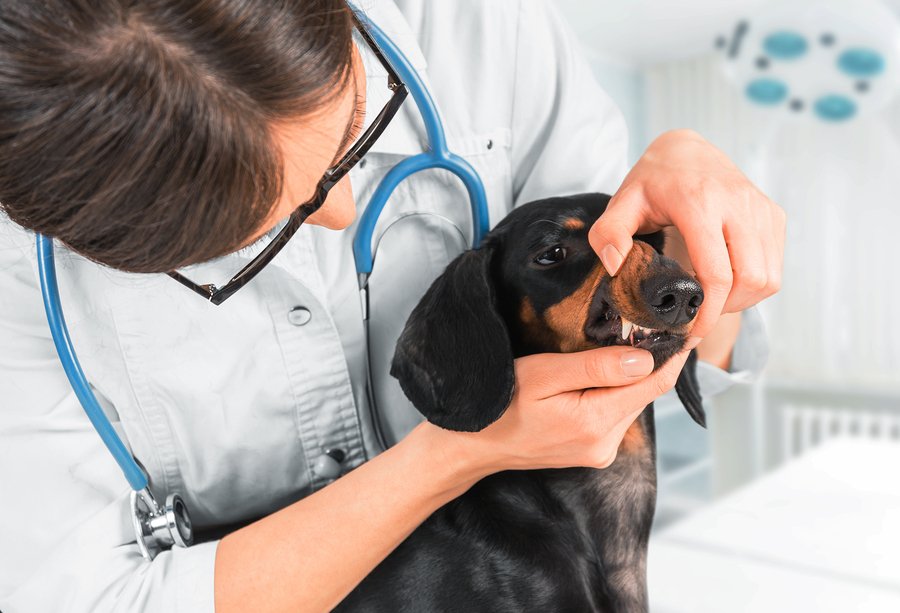How to Ensure Proper Pet Dental Care

The American Dental Association recommends that people visit the dentist annually to prevent dental problems and even more serious medical problems. According to Dr. Johnathon Dodd, clinical associate professor at the Texas A&M College of Veterinary Medicine & Biomedical Sciences (CVM), who runs the small animal dental suite with Thomas Koenig, registered veterinary technician II at the CVM, pets should get yearly dental care as well.
“One of the most overlooked aspects in preventative maintenance is dental care,” explains Dodd. “Your pet’s teeth should be professionally cleaned at least once a year and more often if severe problems are present.”
The most common cause of dental problems is periodontal disease. Periodontal disease starts off as a bacterial growth on the surface of the tooth which leads to inflammation of the gums and can eventually channel to a fatal disease. According to Koenig, around 65-80 percent of dogs have periodontal disease before they are 3 to 4 years old. Periodontal disease can be easily avoided by investing a couple of minutes a day with your pet.
Other than annual teeth cleanings and checkups by a veterinarian, proper dental hygiene should be promoted on a daily basis at home.
“It is best to begin home care when your puppy or kitten is between 8 and 12 weeks old; however it is never too late to start,” notes Dodd. “The first step is to train your pet to accept brushing of the teeth and the best way to approach that is to establish a routine of brushing your pet’s teeth with gauze around your finger. It may be helpful to use beef or chicken broth with dogs or tuna water with cats to get them accustomed to the routine instead of using cleaning agents.”
Once your pet is familiar with the daily routine, you can switch out the gauze for a fingerbrush or a very soft toothbrush. Then you can incorporate using pet toothpaste. Do not use toothpaste intended for people because the ingredients can cause stomach issues in your pet if ingested.
“It is also important to remember not to give your pets bones to chew on,” explains Koenig. “In addition to the gastrointestinal issues bone chips can cause, bones cause real problems for the teeth. Bones are notorious for causing teeth to break which leads to additional visits to the veterinarian and further medical problems.”
Koenig recommends rawhides or softer chew bones to replace bones as chew toys for your pet.
Certain pet foods have enzymes that help with dental maintenance. There are also water additives available on the market that can help with teeth health. However, the most proactive and reliable dental care for your pet is to brush daily and to keep it on a routine basis so your pet is more receptive to the process.
“Good dental care is essential to extend your pet’s life span and assure a good quality of life,” expressed Dodd. “I really enjoy my profession because it is very rewarding as I can see firsthand how much healthier my patients are due to proper dental care.”
For more information on pet dental problems or dental care, please call the CVM Small Animal Hospital at 979-845-2351 or visit their website at https://vethospital.tamu.edu/small-animal/dentistry/.
Pet Talk is a service of the College of Veterinary Medicine & Biomedical Sciences, Texas A&M University. Stories can be viewed on the Web here. Suggestions for future topics may be directed to cvmtoday@cvm.tamu.edu.


